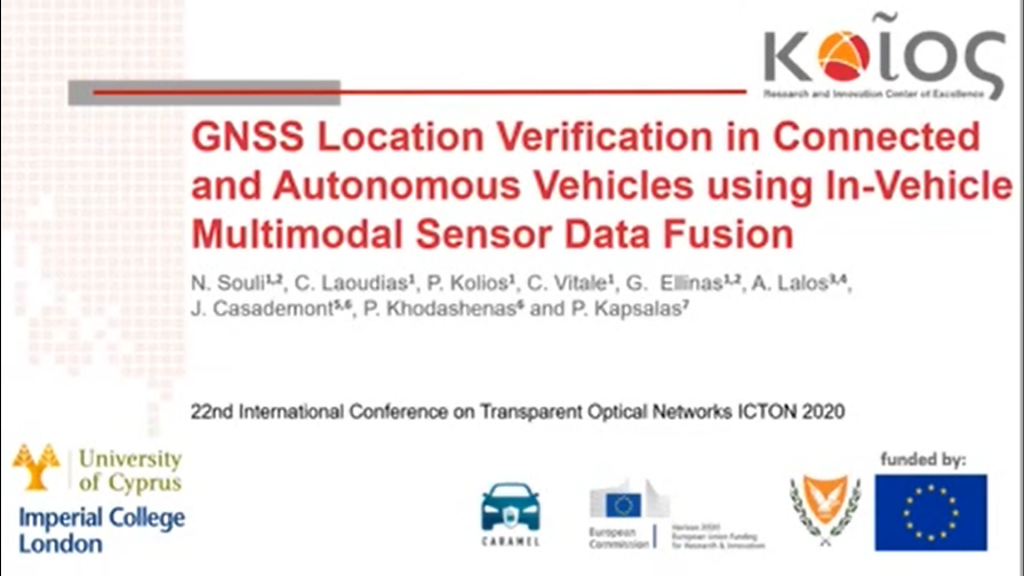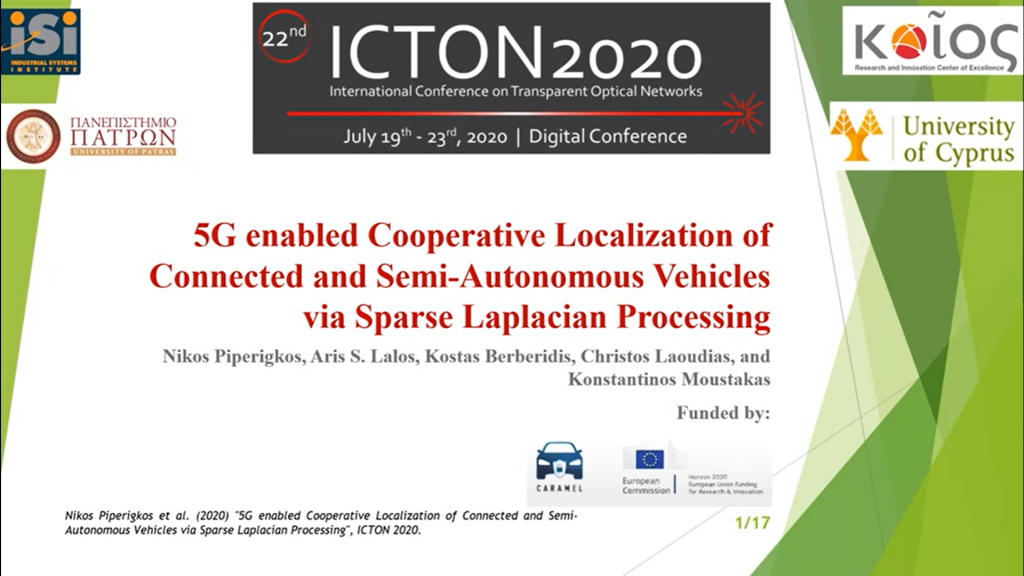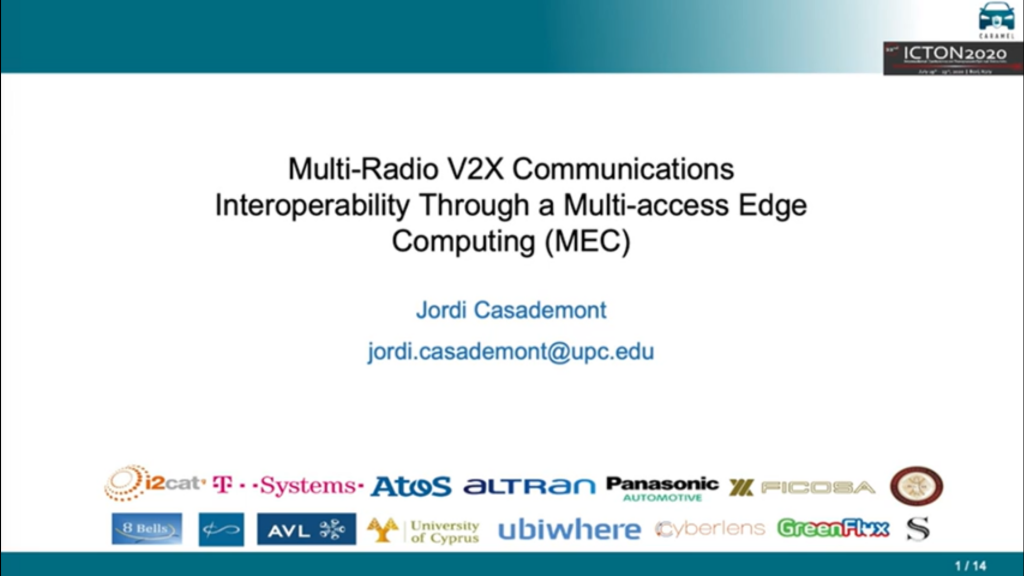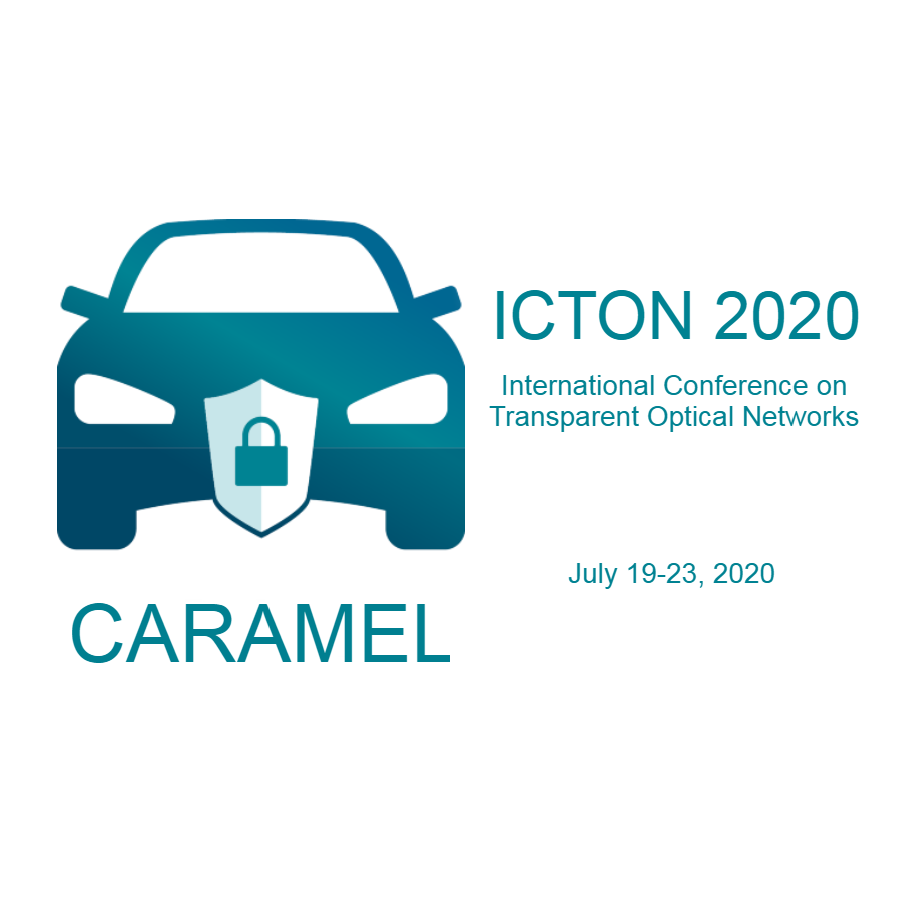CARAMEL was present yesterday at the International Conference on Transparent Optical Networks with the presentation of the following papers:
ICTON-OSCto5G GNSS Location Verification in Connected and Autonomous Vehicles using In-Vehicle Multimodal Sensor Data Fusion

ICTON-OSCto5G 5G enabled cooperative localization of connected and semi-autonomous vehicles via sparse Laplacian processing

Abstract
Cooperative Localization has received extensive interest from several scientific communities including robotics, optimization, signal processing and wireless communications. It is expected to become a major aspect for a number of crucial applications in the field of Connected and (Semi-) Autonomous vehicles (CAVs), such as collision avoidance/warning, cooperative adaptive cruise control, safely navigation, etc. 5G mobile networks will be the key to providing connectivity for vehicle to everything (V2X) communications, allowing CAVs to share with other entities of the network the data they collect and measure. Typical measurement models usually deployed for this problem, are absolute position information from Global Positioning Systems (GPSs), relative distance to neighbouring vehicles and relative angle or azimuth angle, from Light Detection and Ranging (LIDAR) or Radio Detection and Ranging (RADAR) sensors. In this paper, we provide a cooperative estimation approach that performs multi modal-fusion between interconnected vehicles. This method is based on a Graph Signal Processing tool, known as Laplacian Graph Processing, and significantly outperforms existing method both in terms of attained accuracy and computational complexity.
ICTON-CTSII Multi-radio V2X communications interoperability through a multi-access edge computing (MEC)

Abstract:
Nowadays, we are ready to have precommercial Cooperative Intelligent Transport Systems (C-ITS), nevertheless there exist challenging functional and security aspects that need to be addressed. One of them is the fact that, in every era, there will be several radio technologies which will be used by vehicles that need to be connected between them, therefore, the systems needs to provide interoperability services. The other critical issue is to reinforce security against attacks on localization receivers or in vehicles equipment. Most of these functions are based in a large amount of computation power, to this end, this paper presents the approach taken by H2020 CARAMEL project, using a Multi-access Edge Computing (MEC) that could provide the necessary performance assets.
All presentations can be accessed from the ICTON Conference online platform.
https://icton2020.fbk.eu/conference-online-platform
Until 30 September 2020

